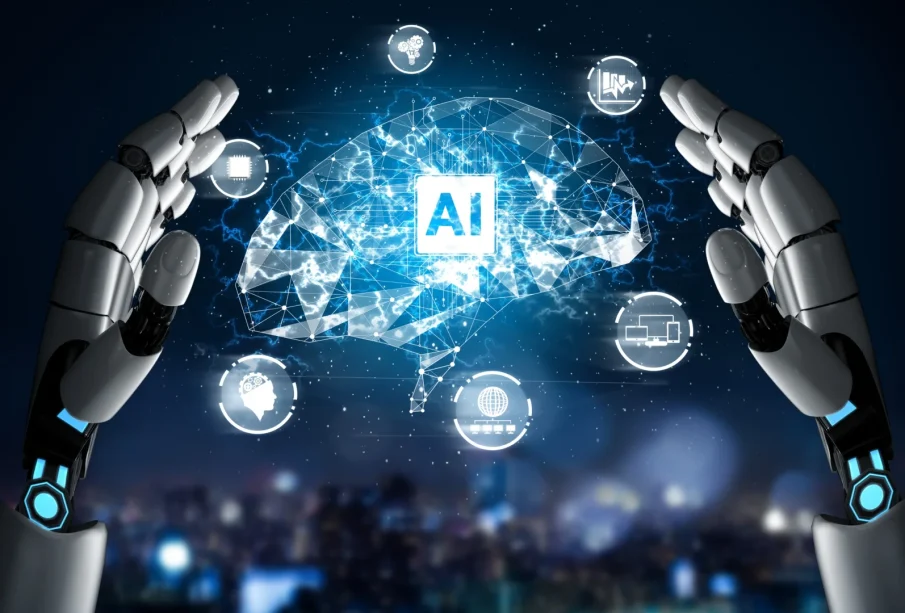The Impact of AI on Business

Artificial Intelligence (AI) is no longer just a tool for tech giants—it’s rapidly becoming an integral part of businesses across every industry. From improving operational efficiency to enhancing customer experiences, AI offers a wide range of benefits that are reshaping the business landscape. In 2024, the role of AI continues to evolve, and companies that embrace it are positioned to thrive. Here’s how AI is transforming business and how you can leverage it for success.
1. AI-Driven Customer Experiences
Customer experience is a key differentiator in today’s competitive market, and AI is making it easier to create personalized, seamless interactions. With AI, businesses can provide tailored recommendations, anticipate customer needs, and offer real-time support through chatbots and virtual assistants.
Example: Retailers like Amazon use AI to suggest products based on user behavior, creating a hyper-personalized shopping experience that drives sales.
2. Automation and Efficiency Gains
AI-powered automation tools are helping businesses streamline operations, reduce manual labor, and eliminate human error. By automating repetitive tasks, employees can focus on higher-value work, increasing overall productivity.
Example: Companies like UiPath provide robotic process automation (RPA) software that enables businesses to automate tasks such as invoice processing and data entry, saving time and resources.
3. AI in Data Analytics and Decision-Making
Businesses generate massive amounts of data, and AI is playing a crucial role in turning this data into actionable insights. AI-powered analytics tools can detect patterns, predict trends, and make data-driven decisions faster than traditional methods.
Example: IBM Watson offers AI solutions that help businesses analyze consumer data to predict future behavior and optimize marketing strategies.
4. AI-Powered Marketing Strategies
Marketing is becoming more efficient and targeted thanks to AI. AI tools analyze customer data to create personalized marketing campaigns, optimize ad spending, and identify the best times and channels to reach consumers.
Example: Platforms like Google Ads and Facebook Ads now use AI to help businesses target the right audience with relevant ads, improving ROI and customer engagement.
5. AI in Supply Chain Management
AI is revolutionizing the supply chain by optimizing inventory management, forecasting demand, and reducing operational costs. AI tools can predict supply chain disruptions, improve delivery routes, and ensure that products are delivered on time.
Example: Tesla uses AI in its supply chain to predict production needs and streamline the distribution process, helping to avoid delays and reduce costs.
6. AI for Product Development and Innovation
AI can enhance product development by analyzing market trends, predicting customer preferences, and even helping to design new products. By integrating AI into the innovation process, companies can stay ahead of the curve and meet consumer demands more effectively.
Example: Nike uses AI to analyze customer feedback and trends, which helps design new athletic products that are tailored to consumer preferences.
7. AI and Cybersecurity
As cyber threats become more sophisticated, AI is being used to strengthen cybersecurity measures. AI can identify and respond to potential security breaches in real-time, protecting businesses from data breaches, fraud, and other threats.
Example: Darktrace uses machine learning algorithms to detect and respond to cybersecurity threats before they cause significant damage, providing businesses with a proactive security solution.
8. AI in Human Resources and Recruitment
AI is transforming HR by automating the hiring process, analyzing resumes, and even conducting initial interviews through chatbots. AI tools can help businesses identify top talent faster and make more objective hiring decisions.
Example: HireVue uses AI to analyze video interviews, assessing candidates’ responses and facial expressions to help HR teams make better hiring decisions.
9. AI in Financial Services
AI is reshaping the financial sector by improving risk assessment, fraud detection, and customer service. AI tools can analyze financial data in real time, helping businesses make informed investment decisions and manage financial risks more effectively.
Example: Mastercard uses AI for fraud detection, analyzing spending patterns to identify unusual transactions and protect users from potential fraud.
10. The Ethical Implications of AI
As AI becomes more integrated into business processes, there are growing concerns about its ethical use. Companies must ensure that their AI systems are transparent, free from bias, and respectful of privacy.
Trend: Businesses are increasingly adopting ethical AI frameworks to ensure fairness, accountability, and transparency in their AI applications.
Conclusion
AI is revolutionizing the way businesses operate in 2024. From enhancing customer experiences to optimizing operations and driving innovation, AI is an essential tool for success in today’s digital-first world. By embracing AI strategically, companies can gain a competitive edge, improve efficiency, and create more personalized, data-driven solutions for their customers.
The future of business is undoubtedly tied to AI—those who leverage its potential will be the ones leading the charge in innovation and growth.



















